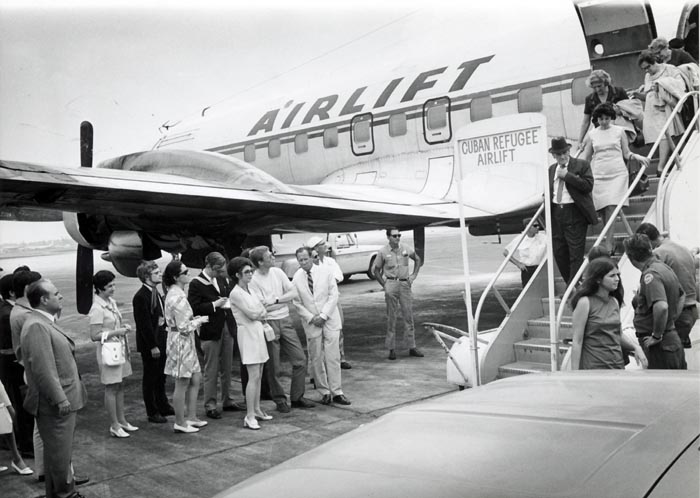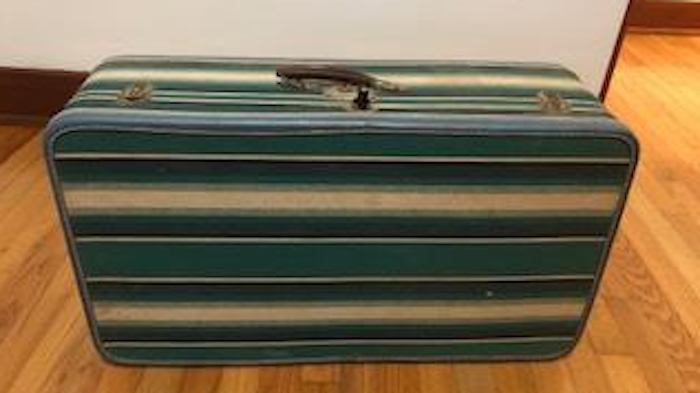
Most of my immediate family (parents, grandparents, aunts, and uncles) arrived in the U.S. in the 1960s and 1970s. As refugees, they sought protection from Cuba’s authoritarian dictatorship and struggled for decades to stabilize themselves in their adopted country. Eventually, my parents earned three Master’s Degrees and founded a successful small business. I am immeasurably proud of their accomplishments and perfectly happy to acknowledge that my own trials and achievements will never compare to theirs.
Lately, I’ve been immersed in a thought experiment. What if the Cuban Revolution played out during Trump’s past or potentially future tenure in office? How would my family be treated? Would they be welcomed? Could they find a footing and help transform Miami from a sleepy Southern backwater into a global city? Or would they be villainized and brutalized like the other tired, poor, huddled masses that yearned to break free in Trump’s America?
First, a bit of math. The U.S. resettled 18,000 refugees during Trump’s last year in office in 2020—the lowest number since 1980. 36,000 Cubans arrived in the U.S. annually between 1960 and 1970, double that quota. He banned hundreds of thousands of refugees fleeing autocratic communist dictatorships in Venezuela and North Korea from entering the U.S. Were the Cuban Revolution to occur today, the likelihood of my family being granted special immigration status would be close to zero.
Now that we’ve done the arithmetic, let’s talk about my father. At 14 years old, he arrived via Operation Peter Pan, a covert Catholic Church initiative that sent 14,000 unaccompanied minors to the U.S. between 1960 and 1962. He was warehoused in a children’s camp until my grandparents arrived from Cuba six months later. This was one of the most difficult times of his life. He was uprooted, sequestered in a foreign country, and had no contact with his parents. As terrible as his experience was, it’d be far worse in a Trump presidency.
Using Trump’s past treatment of unaccompanied migrant minors as a template, my father would be placed in a detention facility, where he’d be subjected to “extreme cold temperatures, lights on 24 hours a day, no adequate access to medical care, basic sanitation, water, or adequate food.” He would also be denied recreational activities, English classes, and legal aid. Indeed, he could become one of the 1,500 migrant children the federal government simply “lost” over a two-month period.
My father would probably be one of the 75% of unaccompanied minors (some as young as four) who had to defend their own immigration cases without a lawyer. With no grasp of the English language or U.S. judicial system, he’d inevitably find himself on a one-way trip back to Cuba, destined to live the rest of his life under the Castros’ thumb. So much for my dad.

My mother, on the other hand, overstayed her tourist visa, just like 62% of undocumented immigrants in the U.S. today. The customs officer had no idea what to do with her, my great-grandmother, and the thousands of other Cubans streaming into the U.S., so he waved her through without stamping her passport. Legally, she never entered the U.S. She was 11 years old when she arrived, and turned 17 before her status was legalized thanks to the Cuban Adjustment Act.
Under Trump, my mother and her parents would live in perpetual fear of a late-night knock on the door that signaled an imminent ICE raid. Maybe my grandparents would be picked up while she was at school. Maybe she’d return to an empty, broken house, orphaned in a foreign land.
My maternal uncle was arrested by the Cuban government for partaking in insurgent activity during the Bay of Pigs invasion. He was captured and thrown in jail to await a mock trail, where he’d inevitably be found guilty of treason and shot. My great-grandmother returned to Cuba in a panic to bribe, cajole, and beg every relevant Cuban official to spare his life. Luckily, his sentence was commuted to seven years. My great-grandmother brought him clothes, food, and medicine to keep him alive for the duration. When her son was finally released, she returned to the U.S. with my aunt and her daughter. Would they have been welcomed back to Trump’s America? Almost certainly not.
If my parents somehow escaped capture and deportation, they’d become Dreamers—two among hundreds of thousands of undocumented migrants who were brought to the U.S. as children. Under the Trump administration, any protections they were afforded under the Deferred Action for Childhood Arrivals program would be under constant attack.
So, what about the other Cuban immigration waves that delivered hundreds of thousands of refugees to American shores? How would they have fared? The Freedom Flights brought 246,000 Cubans to the U.S. Given the visceral reaction the 2018 migrants caravans produced in the White House, I doubt Trump would be much more amenable to an immigrant airlift. The same applies to the flotilla of 100,000 Cubans who arrived during the Mariel Boatlift and the 35,000 who came during the Balsero Crisis.
In short, if the various Cuban migration waves occurred during Trump’s tenure, he would not have allowed them to crest over his country. My family would have been trapped in an autocracy, Miami would have never grow into a flourishing metropolis, and I certainly would not be hunched over my laptop typing this essay. My community was given a shot in the U.S. We took it and repaid our new country one hundredfold. In Trump’s America, we wouldn’t have a chance.
If you like our stories, check out our latest book.
